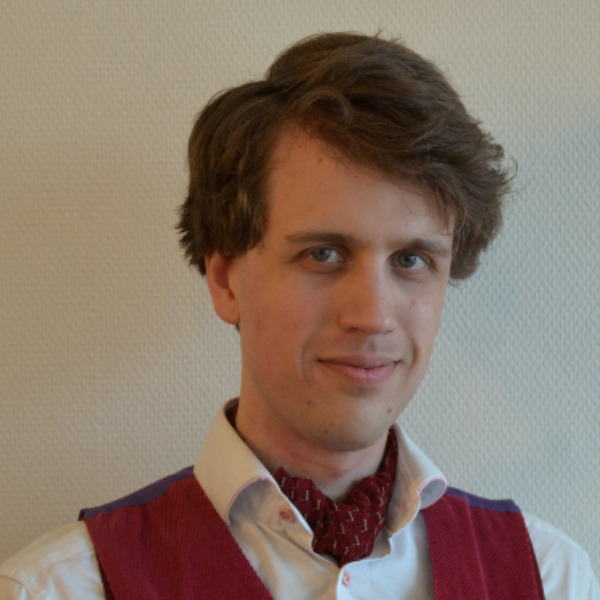| University | University of Groningen (UG) |
| Institute and/or group | Groningen Institute for Evolutionary Life Sciences (GELIFES) |
| Advisors | Prof. dr. Franjo Weissing (UG), Prof. dr. Sijbren Otto (UG) |
| oLife Research Areas | II. Defining properties and synthesis of Life, from the molecular to the biosphere level III. Modelling, predicting and steering of Life |
| Start date
End date Next career step |
April 1, 2020
March 31, 2023 IMDEA Nano, Madrid, Spain |
Profile of the fellow
Alex Blokhuis (Eindhoven, 1991) started as a high-school chemist in supramolecular chemistry (Meijer Research group) at the TU/e, where he later obtained a BsC in Chemical Engineering and in Applied Physics. He then joined the École Normale Supérieure in Paris for a three-year theoretical physics programme (L3, M1, M2), during which he studied Colloidal microswimmers in the group of C. Bechinger (University of Stuttgart) and the stochastic thermodynamics of copolymer chemistry with D. Lacoste (ESPCI). In his PhD (supervised by D. Lacoste & P. Nghe (ESPCI)), he developed theoretical frameworks for the scenario-independent study of physical aspects of abiogenesis, using general chemistry and the theories of nonequilibrium thermodynamics, stochastic processes and reaction networks. These aspects include group selection, (transient) compartmentalization, (auto)catalysis, sequence exploration, functional networks and chemical evolution. In April 2020 he joined the Weissing group and Otto group as a postdoctoral researcher to study error-correction and ecological organization for synthetic replicators.
Emergent properties in dissipative chemical networks: error-correction and ecology
Our modern biosphere is packed with functional chemical systems, performing diverse tasks such as synthesis, sensing and timekeeping. Such tasks are performed with an accuracy, speed and yield far beyond the limits set by our classical synthetic chemistry. Theoretical frameworks are now slowly unveiling entirely novel principles in chemistry, which the biosphere has learned to exploit. The field of systems chemistry has the ambition to achieve the same. In this project, we develop new theoretical frameworks (based on nonequilibrium thermodynamics and chemical networks) and apply them in the study of synthetic self-replicating molecules.
Our first aim is an experimental mastery of error-correction for synthetic replicators. Simultaneously, we will develop theoretical generalizations of error-correction in broader chemical contexts. Understanding and controlling error-correction is an essential condition to permit the emergence of new replicators, and to maintain them.
A second aim is to understand the ecological interactions that govern populations of synthetic replicators. From the bottom up, a microscopic derivation of these interactions will be performed, which will then be compared with ecological approaches used in theoretical biology and evolutionary systems biology. Through a combined effort of systems chemistry and theoretical biology, we strive to provide new bridges between the two, to better understand the transition from molecules to a biosphere.

Dr. Alex Blokhuis
